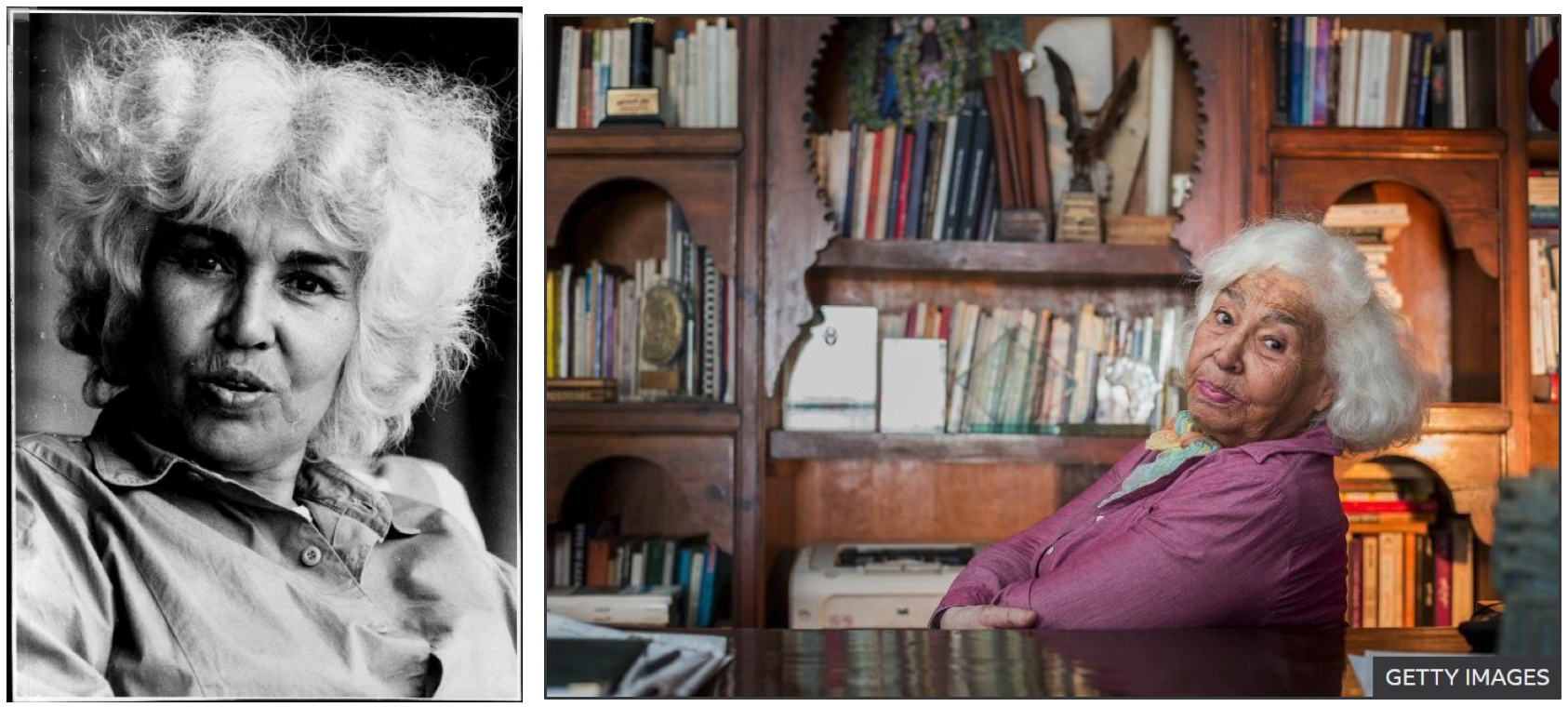
They said, “You are a savage and dangerous woman.”
“I am speaking the truth. And the truth is savage and dangerous.”
So wrote Nawal El Saadawi, who has died at the age of 89 in Egypt. She was a pioneering doctor, feminist and writer who shared her own story and perspectives – in her novels, essays, autobiographies and eagerly attended talks. Her honesty and unwavering dedication to improving the political and sexual rights of women inspired generations. But in daring to speak out, she was also subjected to outrage, death threats and imprisonment.
Born in a village outside Cairo in 1931, the second of nine children, she wrote her first novel at the age of 13. Her family tried to make her marry at the age of 10, but when she resisted her mother stood by her. Her parents encouraged her education, but she realised at an early age that daughters were less valued than sons.
She graduated with a degree in medicine from Cairo University in 1955 and worked as a doctor, eventually specialising in psychiatry. She went on to become director of public health for the Egyptian government, but was dismissed in 1972 after publishing the book, Women and Sex, which opposed the sexual oppression of women. The magazine Health, which had she founded a few years earlier, was closed down in 1973.
In 1975, she published Woman at Point Zero, a novel based on a real-life account of a woman on death row she had met. It was followed in 1977 by The Hidden Face of Eve, in which she described what it was like to be subjected to female genital mutilation at the age of six, on the bathroom floor, as her mother stood alongside her. She also documented her experiences as a village doctor witnessing sexual abuse, “honour killings” and prostitution. The book caused outrage, with critics accusing her of reinforcing stereotypes of Arab women.
In September 1981, she was arrested as part of a round-up of dissidents under President Anwar Sadat and held in prison for three months. There she wrote her memoirs on toilet paper, using an eyebrow pencil smuggled to her by a jailed sex worker. After Sadat was assassinated, she was released but her work was censored and her books banned. In the years that followed, she received death threats from religious fundamentalists, was taken to court, and eventually went into exile in the USA. There she continued to oppose religion, colonialism and Western hypocrisy. She railed against the Muslim veil but also against make-up and revealing clothes.
When BBC presenter Zeinab Badawi suggested during an interview in 2018 that she tone down her criticism, El Saadawi replied: “No. I should be more outspoken, I should be more aggressive, because the world is becoming more aggressive, and we need people to speak loudly against injustices. I speak loudly because I am angry.”
She returned to Egypt in 1996 and soon caused a stir. She stood as a presidential candidate in the 2004 election and was in Cairo’s Tahrir Square for the 2011 uprising against President Hosni Mubarak. She received numerous honorary degrees from universities around the world.
She spent her final years in Cairo, close to her son and daughter.
In 2020, Time magazine named her one of its 100 Women of the Year, dedicating the front cover to her.
As Egyptian newspapers reported her death, the simple message (in Arabic): “Nawal Al-Saadawi…….. goodbye” appeared on her Facebook page [link no longer available].
She was revered by the feminist movement around the world. Her books have been translated into more than 40 languages.
SOURCE: BBC News, by Jasmine Taylor-Coleman, 21 March 2021.
VIDEO: “They don’t believe that feminism is in every country.” in the BBC News report.
PHOTOS from 1986 and recently, both Getty Images, also in the BBC News report.



